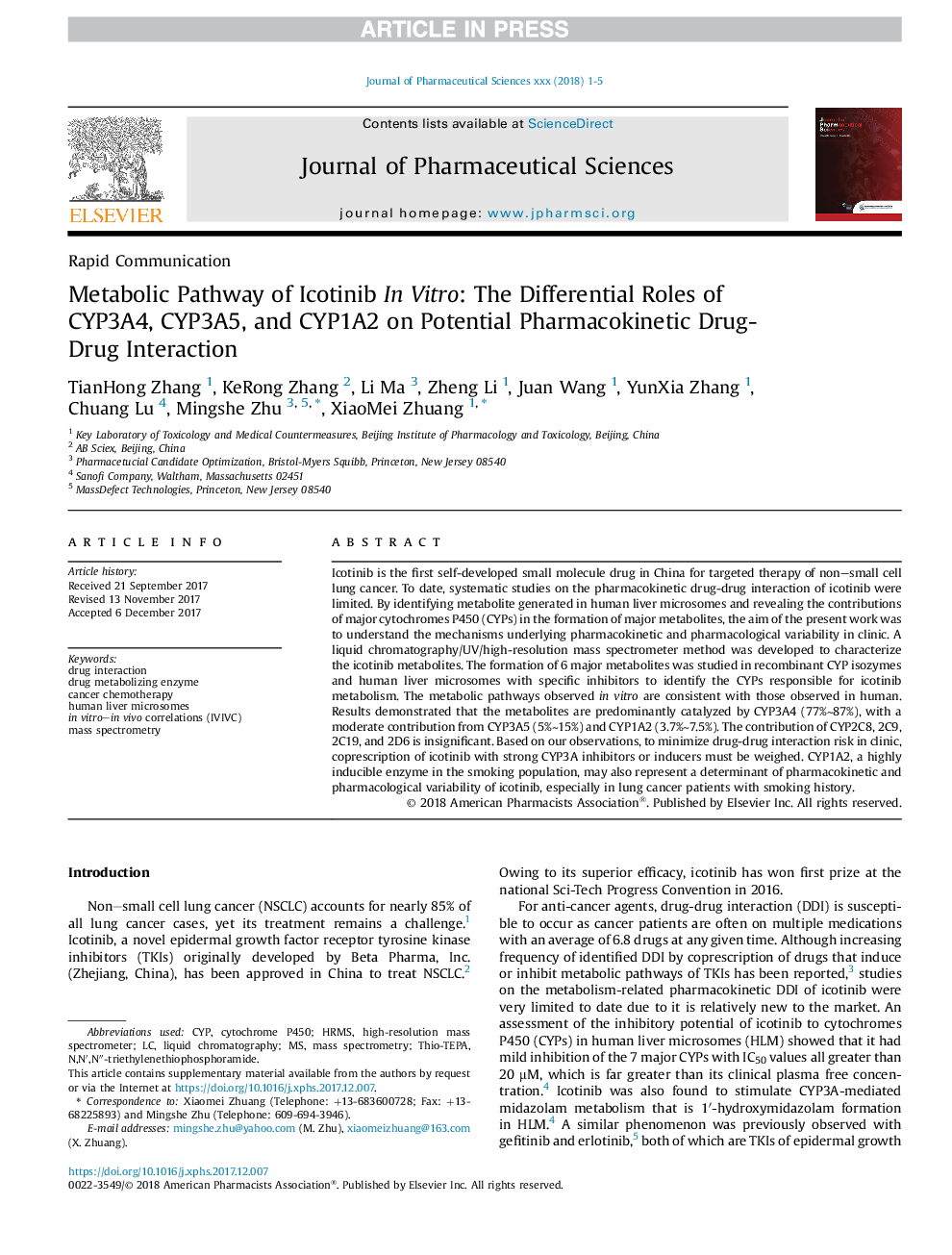| Article ID | Journal | Published Year | Pages | File Type |
|---|---|---|---|---|
| 8513359 | Journal of Pharmaceutical Sciences | 2018 | 5 Pages |
Abstract
Icotinib is the first self-developed small molecule drug in China for targeted therapy of non-small cell lung cancer. To date, systematic studies on the pharmacokinetic drug-drug interaction of icotinib were limited. By identifying metabolite generated in human liver microsomes and revealing the contributions of major cytochromes P450 (CYPs) in the formation of major metabolites, the aim of the present work was to understand the mechanisms underlying pharmacokinetic and pharmacological variability in clinic. A liquid chromatography/UV/high-resolution mass spectrometer method was developed to characterize the icotinib metabolites. The formation of 6 major metabolites was studied in recombinant CYP isozymes and human liver microsomes with specific inhibitors to identify the CYPs responsible for icotinib metabolism. The metabolic pathways observed in vitro are consistent with those observed in human. Results demonstrated that the metabolites are predominantly catalyzed by CYP3A4 (77%â¼87%), with a moderate contribution from CYP3A5 (5%â¼15%) and CYP1A2 (3.7%â¼7.5%). The contribution of CYP2C8, 2C9, 2C19, and 2D6 is insignificant. Based on our observations, to minimize drug-drug interaction risk in clinic, coprescription of icotinib with strong CYP3A inhibitors or inducers must be weighed. CYP1A2, a highly inducible enzyme in the smoking population, may also represent a determinant of pharmacokinetic and pharmacological variability of icotinib, especially in lung cancer patients with smoking history.
Related Topics
Health Sciences
Pharmacology, Toxicology and Pharmaceutical Science
Drug Discovery
Authors
TianHong Zhang, KeRong Zhang, Li Ma, Zheng Li, Juan Wang, YunXia Zhang, Chuang Lu, Mingshe Zhu, XiaoMei Zhuang,
